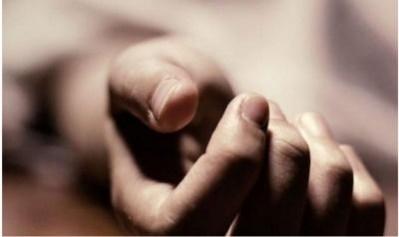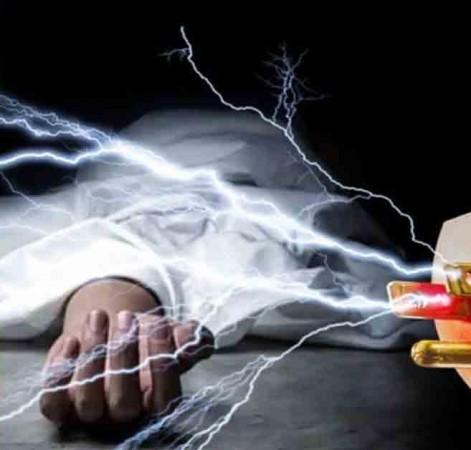
Notwithstanding repeated warnings issued by the Health Department against using charcoal or gas heaters indoors to beat the severe cold, nine persons, including five members of a family, have lost their lives due to asphyxiation during the last six days in different parts of Jammu and Kashmir.
On the first day of the year 2025, three youth from Jammu were found dead under mysterious circumstances in a guest house in the Bhaderwah area of Doda district, where they had gone to celebrate the new year.
Although a Special Investigating Team (SIT) has been constituted to ascertain the real cause of the deaths of the trio, a charcoal heater was found in the room, and it is believed that they could have died due to asphyxiation.
The deceased were identified as Mukesh Singh, Ashutosh Singh, and Sunny Choudhary, all residents of Jammu.
On January 3, a mother and son were found unconscious at their home in the Gudder area of Kulgam due to suffocation caused by charcoal fire fumes. The son died in the hospital this morning, while the mother remains critical.
Reports said that the mother and son from Gudder, Kulgam, were found unconscious on January 2 at their residence and were immediately shifted to the hospital for medical aid. The son passed away this morning, while his mother is in critical condition.
The official identified the deceased as Nisar Ahmad Khan and his mother as Fameeda Akhter.

Five of family die due to asphyxiation on Sunday
In another incident, a couple and their three children lost their lives due to asphyxiation in the Pandrathan area of Srinagar on Sunday.
The ill-fated family originally hailed from the Gingal area of Uri of the Baramulla district of North Kashmir and was living in a rented accommodation in the Sheikh Mohalla Pandrathan area of Srinagar city.
According to police, they found the family in an unconscious state inside the rented accommodation and recovered an electric blower from the room. They were shifted to the hospital, where doctors declared them brought dead.
Police identified the deceased as Ajaz Ahmad Bhat (38), his wife Saleema (32), and their three children—Areeb (3), Hamza (18 months) and a month-old baby. A case has been registered, and an investigation has been conducted.
Meanwhile, Lieutenant Governor Manoj Sinha has expressed grief over the loss of lives due to the tragic incident in the Pandrethan area of Srinagar.
In a condolence message, the Lieutenant Governor said: "Saddened by the loss of precious lives in a tragic incident in Srinagar. My deepest condolences to the bereaved family in this hour of grief".
Chief Minister Omar Abdullah has also expressed profound grief and sorrow over the tragic death of the family.
He conveyed his deepest condolences to the bereaved relatives, praying for strength and patience to help them cope with this irreparable loss.
While praying for the departed souls, Omar urged people to exercise utmost caution while using heating gadgets during the harsh winter months. He emphasized the importance of adhering to government-issued advisories on the safe use of heating equipment to prevent such tragic incidents.
SKIMS already issued advisory to prevent carbon monoxide poisoning
The critical care department at Sher-i-Kashmir Institute of Medical Sciences (SKIMS) Soura has issued a public advisory to prevent carbon monoxide poisoning, advising people to install carbon monoxide detectors and ventilate their houses properly.
"In light of a concerning increase in cases of carbon monoxide (CO) poisoning recently reported within our community, we urge all residents to take immediate precautions to protect themselves and their families," the advisory reads.
It added, "Carbon monoxide is a colourless, odorless, and tasteless gas that can be deadly if inhaled in large amounts. The number of individuals treated for CO poisoning in our critical care units has risen drastically, with many patients requiring emergency intervention."
Who is at risk?
Households using gas heaters, stoves or fireplaces, vehicles running in closed garages and use of generators or grills indoors and workplaces with poor ventilation, especially in confined spaces.
Signs and symptoms:
Headaches, dizziness or lightheadedness, nausea and vomiting, fatigue or weakness, shortness of breath, confusion or mental disorientation, and chest pain (in severe cases). If you experience any of these symptoms, leave the area immediately and seek medical attention.
Key safety tips to prevent carbon monoxide poisoning:
- Install carbon monoxide detectors: Place detectors in key areas of your home, especially near sleeping areas. Ensure they are in working order with fresh batteries.
- Never use generators indoors: Always operate generators outdoors, away from windows, doors, and vents.
- Avoid using charcoal or gas geysers and heaters indoors. These can quickly build up dangerous levels of carbon monoxide.
- Ventilate your home properly: Ensure adequate airflow in areas with fuel-burning appliances, like gas heaters or stoves.
- Check chimneys and vents: Ensure that chimneys, fireplaces, and vents are unobstructed to allow for the proper expulsion of gases.
- Never leave your car running in a closed garage. Always ensure the garage door is open when operating a vehicle indoors, or better yet, avoid running a car inside a garage entirely.
- Regular maintenance: Have your heating systems, water heaters, and other fuel-burning appliances regularly serviced by a professional.
What to do in case of suspected poisoning?
Evacuate immediately: Leave the area and get fresh air.
Call emergency services: Seek medical help immediately. Time is critical in cases of carbon monoxide poisoning.
Avoid re-entering the affected area until professional help has deemed it safe.
The increase in carbon monoxide poisoning cases is alarming, and prevention is essential. By taking these simple safety measures, you can reduce the risk of exposure and protect your loved ones from harm.

















